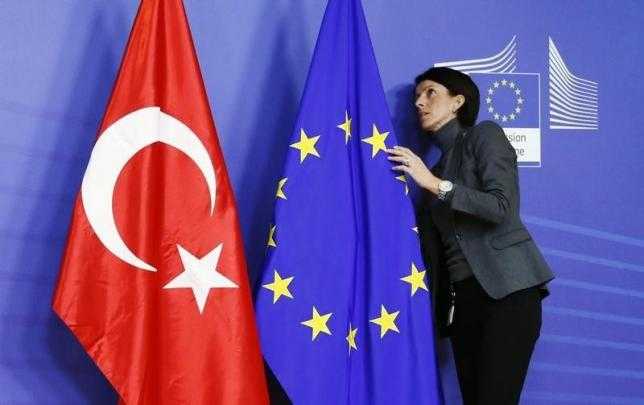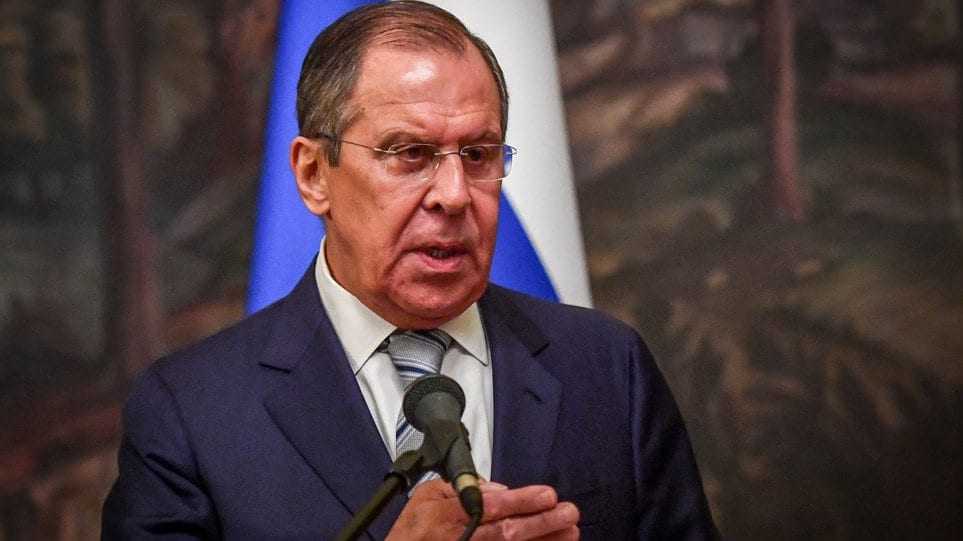Biden’s promises to bring “decency” to the US’s policies – effectively, to reverse Trump’s initiatives – are already being viewed with concern in the Middle East and threaten to once again roil that region and turn it against Washington.-
By Lindsay Hughes, Senior Research Analyst, Indo-Pacific Research Programme-Gutures Directions International
Key Points
- The Biden Administration has declassified and made public an intelligence report that blames Muhammad bin Salman for the murder of Saudi dissident Jamal Khashoggi.
- It appears that that action was the outcome of an election promise to be more transparent and to emphasise human rights; it was also caused by personal animus against Saudi Arabia.
- Recognising that, Riyadh is likely to turn from the Biden Administration.
- The Biden Administration appears to have also de-emphasised its relationship with Israel.
- Riyadh and Jerusalem are, therefore, in the initial stages of establishing a security alliance.
Summary
The Biden Administration has made public a declassified intelligence report from the Office of the Director of National Intelligence entitled “Assessing the Saudi Government’s Role in the Killing of Jamal Khashoggi”. The report unequivocally notes in its Executive Summary,
We assess that Saudi Arabia’s Crown Prince Muhammad bin Salman approved an operation in Istanbul, Turkey[,] to capture or kill Saudi journalist Jamal Khashoggi.
- We base this assessment on the Crown Prince’s control of decision[-]making in the Kingdom, the direct involvement of a key adviser and members of Muhammad bin Salman’s protective detail in the operation, and the Crown Prince’s support for using violent measures to silence dissidents abroad, including Khashoggi.
That conclusion was already known publicly from the many and varied news reports of Mr Khashoggi’s murder. The report offered little new information, repeating a summation of the CIA’s alleged assessment of the matter that was made public in the aftermath of Mr Khashoggi’s killing. Given that observation, it must be asked why the report was made public now. Why did the US Secretary of State, Mr Blinken, also publish a statement on his department’s website to the effect that the “Khashoggi Ban” would “impose visa restrictions on 76 Saudi individuals believed to have been engaged in threatening dissidents overseas, including but not limited to the Khashoggi killing.” Why, if the Biden Administration promised transparency in government, was the intelligence report later amended to remove the names of three individuals who were listed in the original version with no real explanation for the change? While there may not be definite answers to those questions at this time, it is necessary to gauge the effects of the report’s release on the region and on the US’s strongest Arab ally.
Analysis
President Biden promised, time and again during the election campaign, to emphasise human rights in his administration’s policies, including those of the Yemeni people in light of their hardships caused by Saudi attacks on them using US-supplied munitions. In keeping with that promise, the Department of the Treasury sanctioned the individuals named in the report who allegedly carried out the killing and some others who were involved in it. It did not, however, sanction Muhammad bin Salman (MBS). (Interestingly, in an updated version of the report, three names were removed from the original list of individuals who were sanctioned. Previously, the Biden Administration also stopped short of sanctioning Russian oligarchs who were reported to be involved in the poisoning of Alexei Navalny.) Mr Biden’s Press Secretary, Jen Psaki, announced instead that the White House would “recalibrate” its diplomatic relations with Saudi Arabia. It means, essentially, that the president’s interactions with MBS would be demoted. As Ms Psaki explained in her briefing, ‘The President’s counterpart is King Salman, and I expect that, in appropriate time, he would have a conversation with him.’
That statement highlights the Biden Administration’s inability or refusal to acknowledge ground realities. It was reported as long ago as 2016 that King Salman has Alzheimer’s disease or dementia; no matter which, he is increasingly incapacitated, which accounts for MBS’s proportionately-increasing power within the kingdom. He is now the acknowledged ruler in all but name in Saudi Arabia and will, in all likelihood, become its king sooner rather than later. It is because of that situation that the Trump Administration continued to interact with him and not because President Trump excused his involvement in Mr Khashoggi’s murder. Ms Psaki’s statement would appear to demonstrate, therefore, that just as in the Obama Administration, idealism has overtaken reality in Mr Biden’s.
That is likely not the sum of Riyadh’s irritation with the Biden Administration. Speaking to King Salman before the intelligence report was released, Mr Biden allegedly acknowledged Saudi Arabia’s importance to the US, but also expressed his concerns and left open the issue of accountability. Indeed, as Senator Ron Wyden (Dem-Oregon) a member of the Senate Intelligence Committee, stated,
There is still far more to do to ensure that the Saudi government follows international law. There should be personal consequences for MBS – he should suffer sanctions, including financial, travel and legal – and the Saudi government should suffer grave consequences as long as he remains in the government.
Mr Wyden, like other lawmakers, believes that the mastermind of the affair was literally getting away with murder. While that may be true, it would be prudent for the Biden Administration and future administrations to note that in the Middle East, as in the Far East and South Asia, generational memories play a major role in political decision-making. Mr Biden’s statements that Saudi Arabia must “pay the price, and make them in fact the pariah that they are” and that the Saudi royal family possesses “very little social redeeming value” will undoubtedly return to haunt the US in the future. Equally, no matter that Mr Biden may not wish to interact with MBS, the fact remains that the Crown Prince is an important element of a powerful new Middle Eastern clique that includes Sheikh Mohammed bin Zayed bin Sultan Al Nahyan, the Crown Prince of the Emirate of Abu Dhabi, the Deputy Supreme Commander of the United Arab Emirates Armed Forces and, like his counterpart in Riyadh, the de facto ruler of Abu Dhabi, and Egyptian President Abdel-Fattah el-Sisi. Mr Biden and future administrations will have little option but to deal with those leaders and with Mr Netanyahu, who is fast becoming their ally. He has, however, already corroded the US’s relations with those countries.
Riyadh could point to the fact that the extra-territorial assassinations that Iran has carried out outnumber and are more frequent that those perpetrated by Saudi Arabia, yet neither Secretary of State Blinken nor Mr Biden refer to Iran as a pariah state. On the contrary, Washington has called for direct negotiations with Tehran over its nuclear programme, which the latter has dismissed out of hand. Riyadh has not forgotten the Obama Administration’s decision to transport pallet-loads of currency notes to Tehran aboard a US Air Force aircraft in contravention of the US’s own rules. Riyadh, which perceives Tehran as an existential threat, is hardly likely to take kindly to Mr Biden’s descriptions of its royal family or the kingdom. Riyadh could also legitimately point to the fact that the Biden Administration has recently concluded a nuclear agreement with Vladimir Putin, a man who has also attempted to assassinate his political opponents. It will likely see Mr Biden as a hypocrite, just as it eventually did Mr Obama. Worse, the current ill-will that exists between Riyadh and the Biden Administration will only be exacerbated if the former is led to believe that the latter seeks to separate Saudi Arabia’s rulers from their country and people.
It is the Biden Administration’s perceived hypocrisy and its political mis-steps that lead one political commentator to note in the Arab media,
The wing of former President Barack Obama among the Biden team considers itself in a state of hostility with Saudi Arabia because of the kingdom’s diplomacy that succeeded in persuading former President Donald Trump to withdraw from the ill-fated nuclear deal. … The Obama wing inside the ruling Democratic Party accepts the Iranian regime and turns a blind eye to Iran’s terrorism in Syria, Iraq, Yemen and Lebanon.
He added that President Biden
… has the right to talk about America’s democratic values, but why have these values not been expanded to hold Hezbollah accountable for the recent killing of [anti-Hezbollah Lebanese publisher] Loqman Slim or the slaughter of thousands of thousands of Syrians by pro-Iranian groups? (Arabic)
That reasoning is echoed by Egyptian businessman and TV host Emad El Din Adeeb, who, noting that the Biden administration was “rewarding Iranian despotism while punishing Saudi Arabia, said,
Freedom of expression, assembly and association are prohibited in Iran. … [Tehran] prevents normal social life and attacks protests, private parties and intellectual seminars. It is issues death sentences against political opponents and practices all forms of systematic torture against detainees and prisoners. The Iranian authorities also practice persecution and oppression against religious minorities.
…
The Biden administration is seeking to bring Iran back to the negotiating table, lift sanctions, and release its assets while halting arms and spare parts shipments to Saudi Arabia, Egypt and the United Arab Emirates. Now Washington is revoking the terror designation of the Houthi terrorist movement in Yemen, thereby encouraging it to increase its missile attacks against innocent Saudi civilians and installations. Washington is now turning a blind eye to Iran’s proxies in the region. (Arabic)
Alleging that the Biden Administration’s release of the intelligence report indicated that it “stands against the aspirations of the Saudi and Gulf people in achieving reform and stability”, Emirati writer Mohammed Khalfan Al-Sawafi’s contempt was evident. He stated,
As Arabs, we do not have any problem with regional or superpower parties playing a role in the international arena… But we reject the interference of any political system or administration that believes its international status and military and financial power allow it to harm our leaders. It seems there are certain agendas that were not completed during the Obama era, and the Biden administration wants to take us back to the time when Biden was Vice President. Instead of confirming the Arab’s concerns about the return of Obama’s policy to the region, it would be appropriate [for the Biden administration] to respect the Arab’s social and political culture, which does not accept any harm to political and religious symbols.
The Obama administration pushed a number of Arab countries toward rapprochement with China and Russia. The Biden administration is now working on the basis of: If you have a problem and are unable to solve it, complicate it or work against it. (Arabic)
It must be noted that Mr Biden could be said to be repaying Saudi Arabia for the years of hostility that Riyadh demonstrated towards Washington. Prince Bandar, for long the Saudi ambassador to Washington, sought good relations with US presidents on the one hand (George Bush, Jr. comes to mind immediately) while, on the other, funded think-tanks, universities and political consultancies that castigated policy-makers in Washington. The release of the intelligence report, therefore, can only be seen as being motivated by an animus towards Saudi Arabia as a whole and MBS in particular.
Questions must be asked, once again, of the validity of that thinking. Is the goal to reform the kingdom politically and socially or something else? If the goal is to reform Saudi Arabia, does it make sense to potentially drive it towards China? If MBS finds no alternative in the face of a hostile Washington but to turn to China, would he, as king, influence Kuwait, Bahrain and the UAE to also enhance their ties to Beijing? China is, after all, very unlikely to comment on his human rights record. Would he allow China to, for example, establish its equivalent of the US’s Fifth Fleet in the Gulf? Would China be allowed to further cement its already-considerable presence in the Middle East and the US’s be “recalibrated”? MBS could remind China that he defended its treatment of its Uyghur population and was China’s largest relief donor following the earthquake that struck Sichuan province in 2008. MBS could also assist China to internationalise the yuan by accepting payment for its sales of energy to China in that currency. A stronger relationship with China would allow the future King Muhammad to diversify his weapons procurement.
The Sino-Saudi relationship may not replace the Saudi-US one, but it would give China an extra foothold in the Middle East that, coupled with its ties to Iran, ought to give Washington pause for thought. Those outcomes could occur at a time when the US-Turkey relationship also appears to be deteriorating. The Biden Administration appears to be taking a considerable risk in placing its ideological promises and possibly personal animus before pragmatic reality.
It is not only the Saudi relationship that Mr Biden has damaged, however; Israel is another case in point. Mr Biden is yet to call Prime Minister Binyamin Netanyahu, a month into his presidency. Press Secretary Psaki could not even bring herself to call Israel an ally. She is not unique in the Biden Administration in that regard. That administration’s national security team is filled with hold-overs from the Obama Administration; rarely in US politics, if ever, has there been a president as antagonistic towards Israel as Mr Obama. He called for a freeze on building Israeli settlements on disputed territory, thereby giving Mahmoud Abbas the perfect excuse to walk away from negotiations while Mr Obama remained in office, which cancelled the efforts of several previous administrations towards a negotiated settlement. On a more personal note, Mr Obama could not forgive Mr Netanyahu’s opposition to what he, Obama, believed was the defining accomplishment of his term in office, the Joint Comprehensive Plan of Action, more commonly referred to as the Iran nuclear deal. Worse, he could not forgive Mr Netanyahu for providing the US Congress a detailed response as to why he opposed it. Mr Biden and Mr Blinken, it appears, have not forgotten that either.
While Israel had made progress towards establishing covert relationships with several Arab countries before Mr Trump took office, it was the latter who created the conditions necessary to formalise them. Accordingly, it was only a matter of time before the UAE, Bahrain, Morocco and Sudan normalised their relations with Israel. It is not inconceivable that, in time, Saudi Arabia might have followed suit, although it would have had (and might yet have) a difficult time explaining to some members of the Organisation of Islamic Co-operation why it had chosen to reduce the importance placed on the issue of an independent Palestine without losing its de facto position as that organisation’s leader. Be that as it may, perceiving the Biden Administration’s antagonism towards Israel, Mr Netanyahu is reportedly in discussions with Saudi Arabia, the UAE and Bahrain to establish a four-nation defence nexus. This is noteworthy for two main reasons.
First, although MBS is rumoured to have visited Jerusalem in secret on more than one occasion, Israel and Saudi Arabia do not as yet have officially-normalised relations. The fact that they are willing to discuss a matter as important as a security alliance despite that drawback, if the report is true, would indicate the level of their common distrust of the Biden Administration. Second, that distrust likely emanates from their judgement that the Biden Administration will continue with the Iran policy of the Obama Administration. Given the number of Obama Administration officials who now permeate the Biden Administration, those countries probably see the Biden Administration as representing Mr Obama’s third term in office and being just as obsessed with entering into a nuclear arrangement with Tehran. If the terms of the new nuclear agreement are similar to those of the Obama Administration’s, including the infamous “Sunset Clause”, they believe that the threat that Iran poses to the region and especially themselves will be heightened and made more immediate. That observation would only increase their distrust of the Biden Administration. It is likely that the three Arab countries will soon begin working to persuade other Sunni Arab countries, if they have not done so already, to side with them and, if necessary, also enter into an alliance with Israel.
Were that to occur, it would further divide the region and the Muslim world, possibly re-start a Sunni-Shi’a conflict and make the US the Islamic world’s primary enemy once again. The Biden Administration’s decision to place ideology before pragmatic reality could become its legacy.





